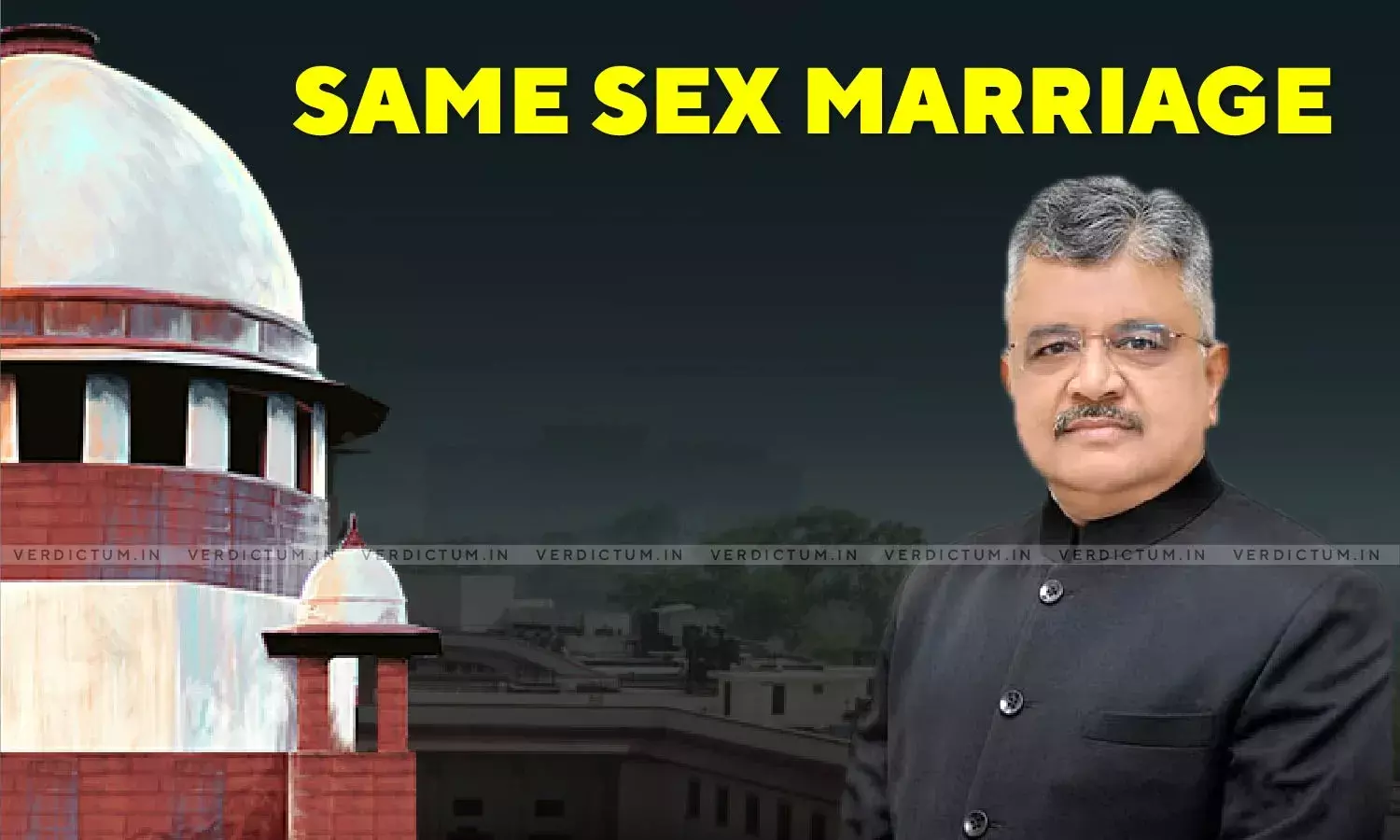Same Sex Marriage| Center Says Same Arguments Can Be Used Tomorrow To Challenge Restriction On Incestous Marriage

Solicitor General Tushar Mehta is today continuing his arguments on behalf of the Central Government before the Constitution Bench, opposing the pleas seeking the legalisation of same-sex marriage.
The Solicitor General today submitted that the arguments made by the petitioners against restriction on same-sex marriage in the Special Marriage Act can possibly be used in future to challenge the restriction on incestuous marriages in the same statute. The Special Marriage Act provides the “degrees of prohibited relationship" within which marriage is prohibited, which prevents incestuous marriages.
"This is my apprehension and I must share at the outset. Kindly, My Lord examine this a little seriously. Why these degrees of prohibited relationships?... Kindly visualize a situation five years down the lane. Based on this thing, that from the very beginning, I am attracted to those persons who are mentioned in the degrees of prohibited relationships. Incest is not uncommon in the world. And world over, incest is prohibited. That I am attracted to my sister. We are consenting adults, we are entering into activities within privacy. We claim our right of autonomy, our right of choice and our right of doing something in the private domain. Based on that very argument, I am posing a question to myself, can someone not challenge this definition itself? Why this restriction? Who are you to decide with whom I have my sexual orientation?" Tushar Mehta submitted, adding that his apprehension may be a little far-fetched.
"That will be far-fetched. That is obviously a reasonable restriction. We can't have...", Chief Justice DY Chandrachud reacted.
"We used to treat even this as far-fetched", Tushar Mehta responded.
"You know Mr. Solicitor, sexual orientation or your autonomy as an individual can never be exercised.. all aspects of marriage, including the entry into marriage, the prohibited relationships, the ground on which marriage can be resolved, these are all subject to regulation by law. So it may be very far-fetched for anybody to even argue before us that orientation is so absolute that I can therefore commit an act of incest. No court will ever.... can countenance it", the CJI responded dismissing the submission.
"Polygamous marriage. Someodoby can challenge the bigamy provision", Tushar Mehta then submitted.
"Polygamous marriage is governed by personal law", the CJI responded.
"I am not on personal law. If I say that my choice is polygamy, State has no right to...", Tushar Mehta started responding before Justice Ravindra Bhat interrupted him.
"...These are universal rules. I think we can all agree that these are universal rules. As long as they were not codified, they were accepted and that was the law, that was a norm. They had normative effect. Why did the state get into it? The state thought it as a universal norm. Now, therefore, if you are building up and saying there is a state interest in this relationship, one can understand. ... When it comes to age also that there is a state interest. There is no felid which is completely autonomous in that sense. Even within the marriage bond, there are certain interests of the state which are legitimate, let us say", Justice Bhat said.
Tushar Mehta also submitted, "Again My Lord, I am insisting that my apprehension may, I wish it's wrong, may perhaps not be wrong, after few years... when Your Lordships were hearing Navtej Johar, all these arguments were made. The central government said that we leave it to the wisdom of the Court, so far as the decriminalisation of Section 377 is concerned, I specifically added in my affidavit that this has nothing to do with future rights of marriage, inherence etc. etc."
Continuing to stress his argument about the possibility of someone seeking legalisation of incest, Tushar Mehta submitted, "Steps from 7 to 8 may lead to 8 to 9. Arguments, the way they are read for marriage, and I am saying this with a sense of responsibility, can be made, whether accepted or not is one thing, for challenging incest prohibition as well".
"Mr. Mehta you don't have to labour the point that the State can regulate even social relationships. The relationship between a parent and a child. Can a parent say I have absolute control over my child? No. The state says you have to send your child to school", the CJI said and the arguments of the Solicitor General continued.
The Consitution Bench of Chief Justice DY Chandrachud, Justice SK Kaul, Justice S Ravindra Bhat, Justice Hima Kohli and Justice P.S. Narasimha is hearing the batch of cases.

